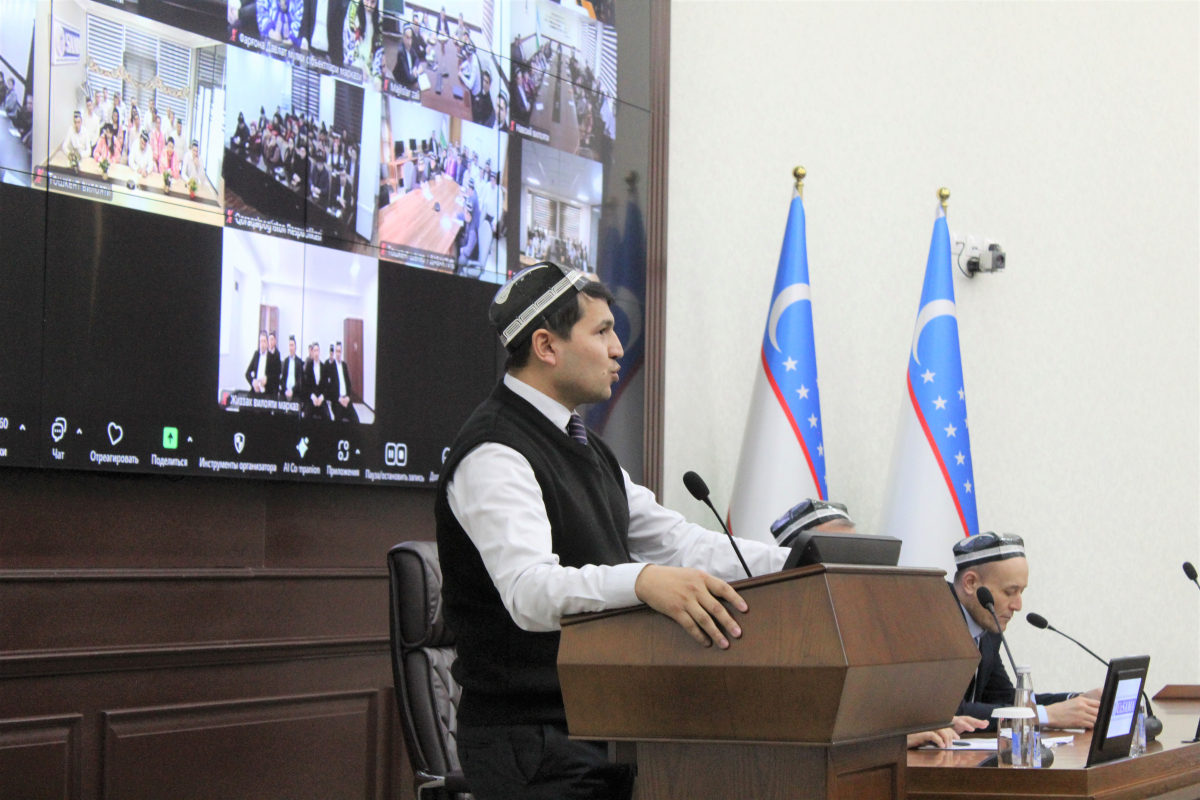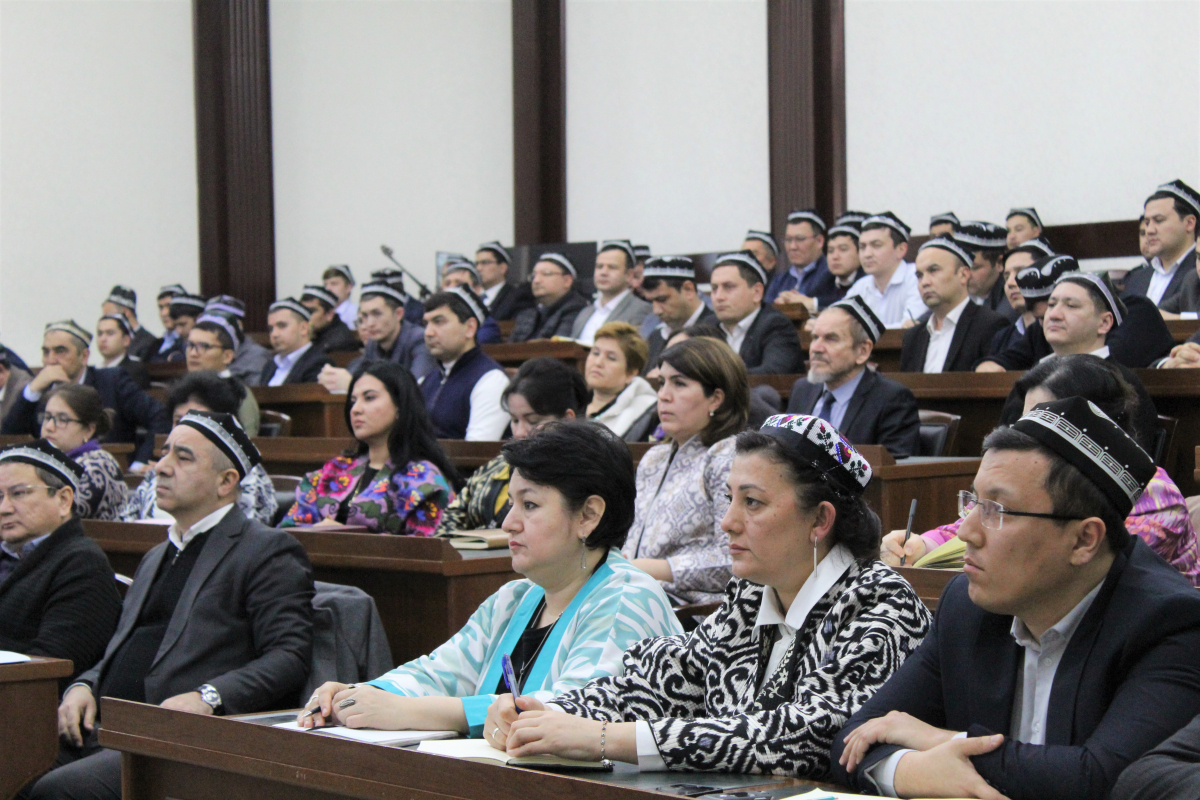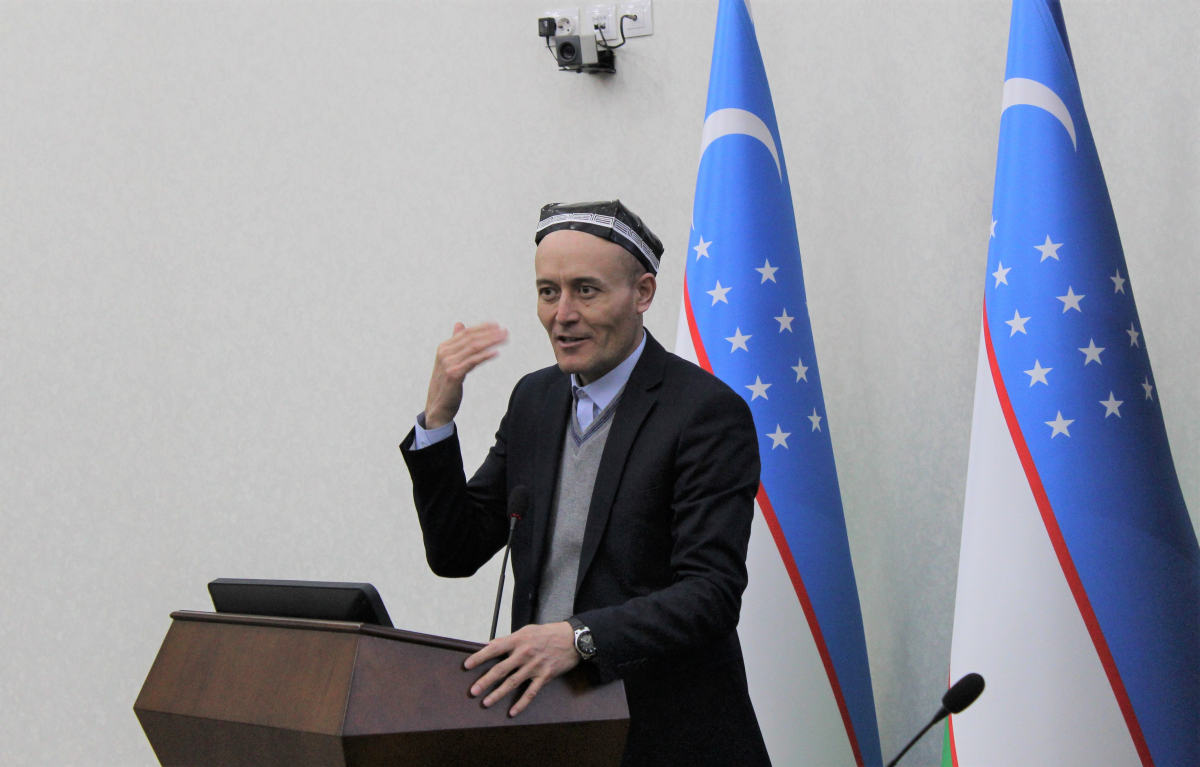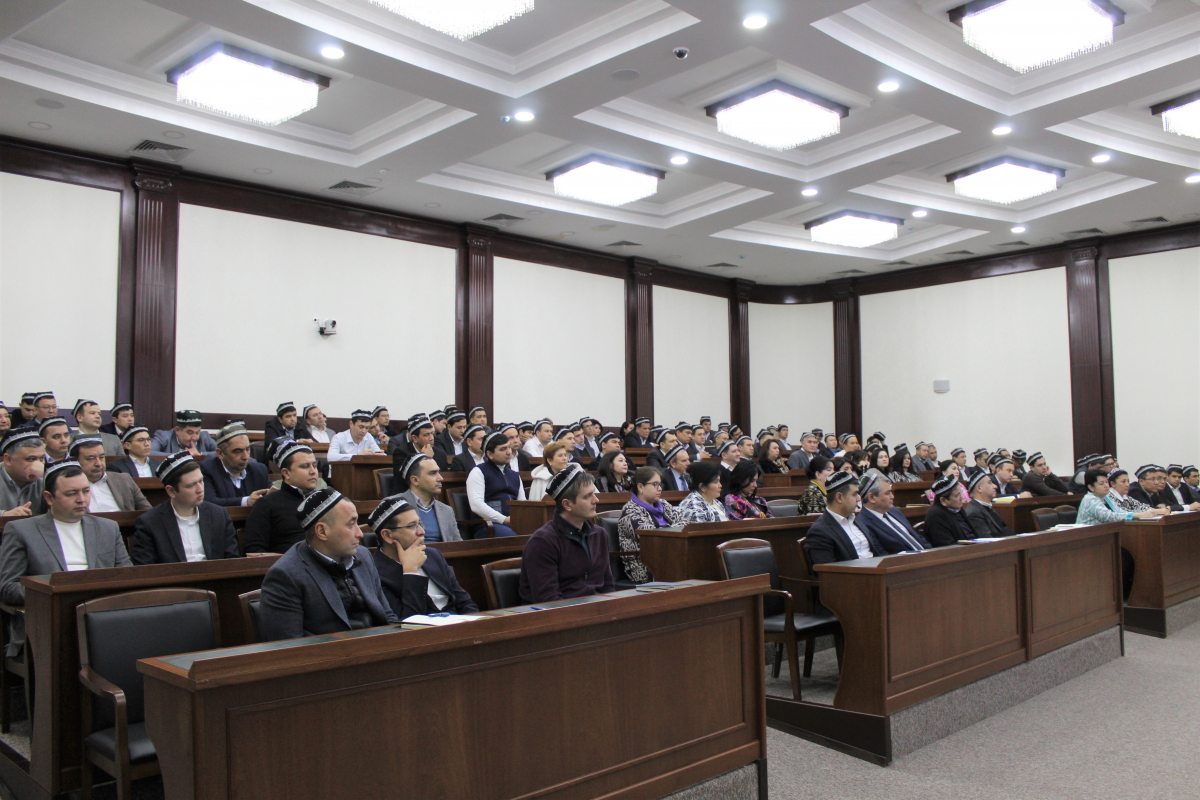During the round table, presentations were made by Melikuziev Jakhongir Valijonovich, responsible officer of the Committee on Religious Affairs of the Republic of Uzbekistan, and Abdufattov Mumin Mirzo Murojon ugli, senior lecturer at the International Islamic Academy of Uzbekistan.
 At the beginning of the event it was stated that preservation and development of national values, popularisation of the rich cultural heritage of the Uzbek people, raising the cultural level and strengthening the role of national traditions in our life is a civic duty of each employee.
At the beginning of the event it was stated that preservation and development of national values, popularisation of the rich cultural heritage of the Uzbek people, raising the cultural level and strengthening the role of national traditions in our life is a civic duty of each employee.
In this regard, based on the order of the Director of UzSAMA, ‘National Dress Day’ is established in the system every Friday, and it was emphasised that within the framework of this initiative, it is expedient for the employees of the system to demonstrate personal example by being at the workplace in clothes that promote the popularisation of national traditions.
 The speakers recalled that the Constitution of the Republic of Uzbekistan establishes that Uzbekistan is a sovereign, democratic, law-based, social and secular State with a republican form of government, and that no ideology may be established as the State ideology. This is particularly important as it is aimed at ensuring freedom of conscience, the rule of law and social justice, as well as the effective safeguarding of human rights, freedoms and interests.
The speakers recalled that the Constitution of the Republic of Uzbekistan establishes that Uzbekistan is a sovereign, democratic, law-based, social and secular State with a republican form of government, and that no ideology may be established as the State ideology. This is particularly important as it is aimed at ensuring freedom of conscience, the rule of law and social justice, as well as the effective safeguarding of human rights, freedoms and interests.
 Considerable work is being done to ensure religious tolerance, and the rights and duties of public servants have been clarified. Religious tolerance is a guarantee of inter-ethnic harmony. Uzbekistan is implementing positive initiatives in this area, which are regulated at the legislative level by special normative acts. As a result, representatives of 16 different religions live in peace and harmony and all the necessary conditions have been created for their beliefs.
Considerable work is being done to ensure religious tolerance, and the rights and duties of public servants have been clarified. Religious tolerance is a guarantee of inter-ethnic harmony. Uzbekistan is implementing positive initiatives in this area, which are regulated at the legislative level by special normative acts. As a result, representatives of 16 different religions live in peace and harmony and all the necessary conditions have been created for their beliefs.
 In addition, in accordance with legislative acts, it was reported that a citizen has the right to independently determine his/her attitude towards religion, to believe or not to believe, to participate or not to participate in rites, religious rituals and ceremonies, as well as to receive religious education, and no one has the right to force him/her to do so.
In addition, in accordance with legislative acts, it was reported that a citizen has the right to independently determine his/her attitude towards religion, to believe or not to believe, to participate or not to participate in rites, religious rituals and ceremonies, as well as to receive religious education, and no one has the right to force him/her to do so.
At the end of the event, a question and answer session was held between participants and staff, and it was noted that the opinions and comments of the speakers were favourably received by the participants.




